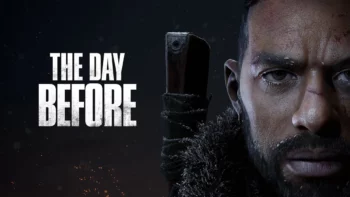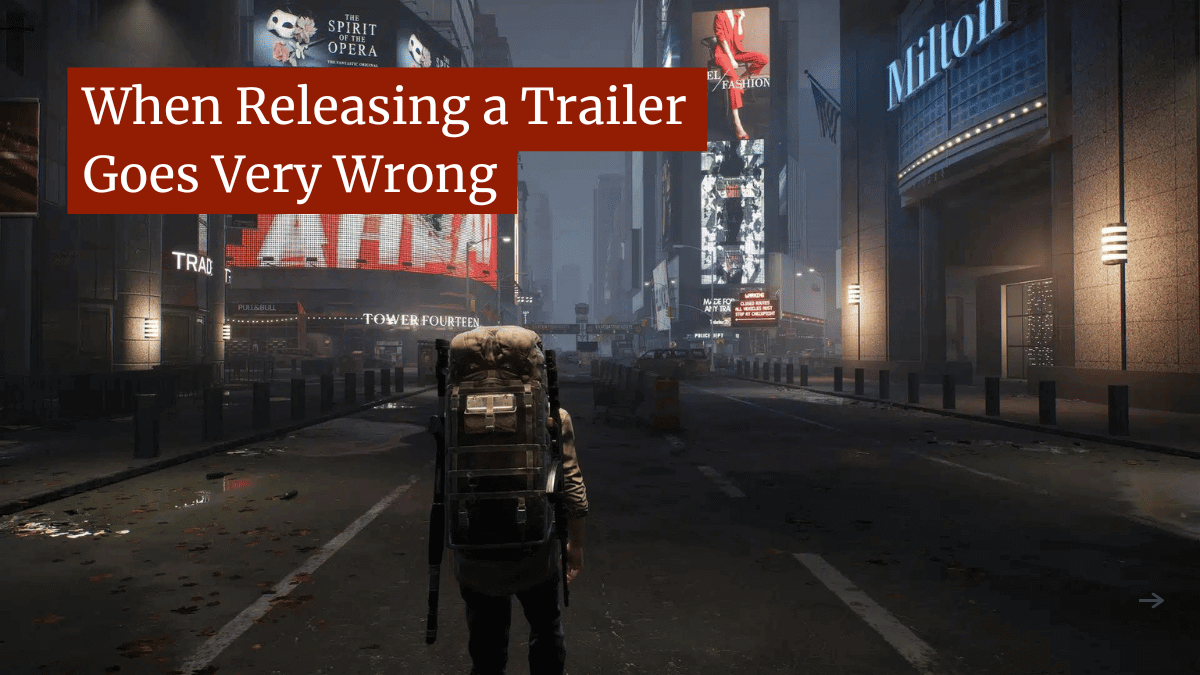The Day Before Accused of Trailer Plagiarism

The past few weeks have been very difficult for Fntastic, the developers of the upcoming video game, The Day Before.
Late last month, the company was forced to announce that its planned release would be delayed from March 1, 2023 to November 10, 2023. This was after the company had already delayed it from June 2022.
The reason was bizarre. The company had failed to secure the needed trademarks in the title of the video game, prompting the current rightsholder to get the game removed from Steam. This was a major blow as, at the time, the game was the second-most wishlisted title on the Steam platform.
At the same time, Fntastic announced that they would soon be releasing a large trailer of gameplay footage. The move was a bid to placate skeptical fans who were already jaded with the recent delays and perceived lack of information about the game.
However, that trailer may have done more harm than good. Users on Twitter and Reddit quickly jumped on similarities between the first few seconds of the trailer and a trailer from the game Call of Duty: Black Ops-Cold War’s zombie mode.
Others began to pile on, noticing similarities in both the trailer and promotional artwork between The Day Before and The Last of Us as well as additional similarities to promotional material from The Division.
This led some to claim that the game is somehow a scam, even though it is neither crowdfunded nor has the company taken any preorders. Still, Fntastic responded with a statement decrying “misinformation”.
In further updates, the developer revealed that they didn’t have a marketing department because they wanted all their “resources to go to game development” but that they still wanted to work on improving their communication with users.
So, this raises a simple question: Did Fntastic plagiarize? The answer is almost certainly yes, but with several important caveats that need to be recognized.
Analyzing the Plagiarism
Looking at the original allegations, the screenshots really do not tell the full story. As others pointed out, the screenshots simply show elements that are common amongst many video video game trailers.
It’s the side-by-side videos that actually tell the more complete story.
Though the video is only three seconds long, it compares four separate shots between the two trailers.
- Camera Viewing Through Grating: In the first shot, a camera looks at a gory tableau through a jail-style grating.
- Red View of Soldier with Gun: The second shot features a soldier walking toward/past the camera, pointing a long rifle. In both cases, the shot is tinted red.
- A Walking Scene with One Player Following Another: In both videos, the next shot is a first-person shot showing the player following another player through a doorway while looking over the other person’s right shoulder.
- Red View of Soldier Gun Moving Past the Camera: The final shot features another red-tinted scene focused on the individuals soldiers, this time with the gun moving past the center of the shot from right to left.
As short as the video is, it’s difficult, if not impossible, to dismiss this as coincidence. The shots are in the same order, last the same amount of time, use the same color filters, and have identical composition other than being shot in two different games.
It’s clear that whoever created that sequence was attempting to replicate the Call of Duty one, and did so with great detail.
This has led to an expanded look at marketing material released for The Day Before, which has found similarities to a wide variety of games. This has led at least one person to call it “the epitome of ‘Can I copy your homework?’”
All of this being said, the case is unlikely to become a copyright infringement lawsuit. While there may be an argument that the new video is close enough to be a derivative work, it’s such a small portion of both the original and new video that there would be many defenses in such a case.
Furthermore, since the case involves promotional trailers for video games and not the games themselves, it’s unlikely that any of the companies that are featured in the similarities would be motivated to take any action.
Still, it’s not a good look for Fntastic, especially as they are trying to convince a wary user base that their game is worthy of the hype it has received.
The Real Problem
When Fntastic said that they didn’t have a marketing department, that was likely a very telling moment. That means, whoever composed that video and the other marketing material didn’t likely have much marketing experience and, as such, may not have been aware of the legal and ethical boundaries that exist.
To be clear, that’s not a justification. This should not have happened, marketing department or none. But it is an explanation.
While I understand the idea of focusing all resources on game development, especially when working on such a large project as a small developer, it’s shortsighted. Marketing people, including both advertising and public relations, are every bit a part of a video game’s success as programmers and artists. The same is true for community administrators, quality assurance people and others that work on such projects.
Creating a video game, especially one as complicated as this, takes a team, and not everyone on that team contributes directly to the game itself. So, as understandable of a decision as it is to forgo a marketing team, it’s also very risky to the game and its reputation, as we’ve seen here.
Bottom Line
In the end, I don’t think the game is a scam or that this plagiarism means that the game is bad, not real or anything else that some commenters have said.
Instead, it’s a sign of a company that didn’t invest in a marketing team and put the onus of creating the video on employees that aren’t likely experts in the field and have a myriad of other things to do.
That doesn’t mean those employees were in the right or that they were justified, but it does mean that decisions by Fntastic played a hand in this issue.
Unfortunately, this could not have happened at a worse time for Fntastic. The game was already reeling from a trademark issue, a second major delay, and the game’s removal from Steam. The community was already wary. This, quite simply, didn’t help.
Normally, something like this would be a speed bump and a footnote in the game’s development. However, the timing made it a much bigger challenge than it would have been ordinarily.
My genuine hope is that Fntastic can right the ship, including the marketing, and release a great game that is worthy of the hype it has gotten.
However, it’s clear that the company is facing some struggles, even if they aren’t struggles that have much to do with the game itself.
Want to Reuse or Republish this Content?
If you want to feature this article in your site, classroom or elsewhere, just let us know! We usually grant permission within 24 hours.
